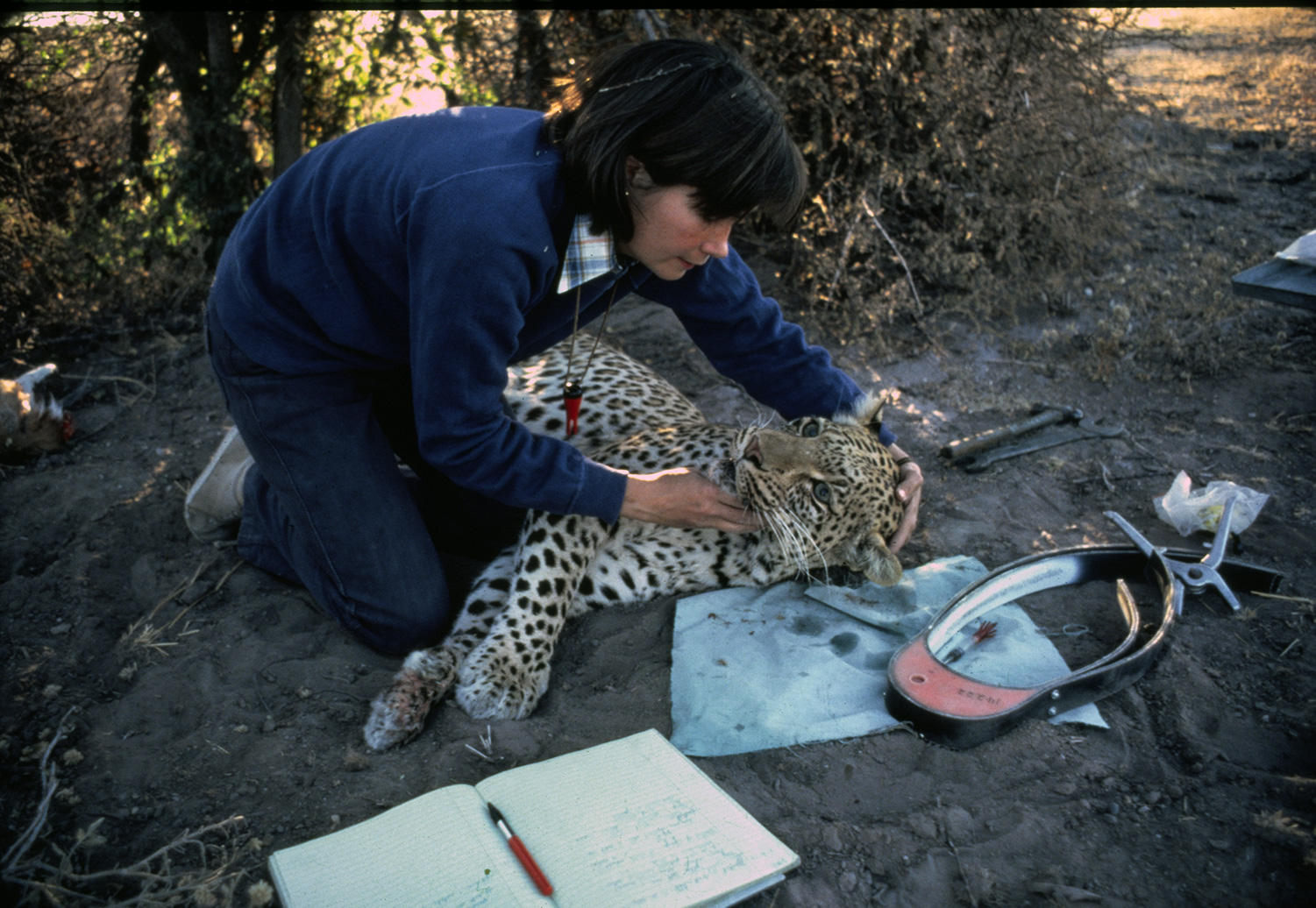Photo: Dawn Marie Tucker
Delia Owens is the co-author of three internationally bestselling nonfiction books about her life as a wildlife scientist in Africa including Cry of the Kalahari.
She has won the John Burroughs Award for Nature Writing and has been published in Nature, The African Journal of Ecology, and many others.
She currently lives in North Carolina. Where the Crawdads Sing is her first novel.
Biography
Early Years
Delia was born in southern Georgia, and grew up riding horses in the woods around Thomasville. Her mother, also an outside-girl, encouraged Delia to explore far into the oak forests, saying “Go way out yonder where the crawdads sing.” Her mother taught her how to hike without stepping on rattle snakes, and most important not to be afraid of critters of any kind. Delia went on to spend most of her life in or near true wilderness, and since childhood has thought of Nature as a true companion. One of her best friends.
Delia enjoys a mountain top in North Carolina during a family vacation in 1960.
Delia’s strong bonds with the families of a small town and her close relationships with girlfriends have stayed with her all her life. Her novel is dedicated to three friends she has cherished since second grade. These close relationships and Delia’s intimate connections with Nature have influenced her studies and writing.
Even at this early age, Delia loved writing. In the sixth grade of her small grammar school, she won first place in a writing competition, and felt sure this meant she would one day be a writer.
Since her family spent some of every summer in the mountains of North Carolina, Delia has a special attachment to the wild and beautiful places of that state. Where the Crawdads Sing is based in the lush Carolina coastal marsh.
By the time she started university, she had decided to pursue a career in science, instead of literature. She received a Bachelor of Science degree in zoology from the University of Georgia and a Ph.D. in Animal Behavior from the University of California in Davis.
The Africa Years
The Kalahari Lions and Brown Hyenas
In an old, rattle-trap Land Rover, Delia and Mark Owens drove overland into the Central Kalahari of Botswana in early 1974. They set up a basic campsite in an area so remote they were the only two people, except for a few bands of roving Bushmen, in an area the size of Ireland. Very soon the first pride of lions moseyed up to Delia and Mark’s camp, and lay just beyond the trees. The Owens radio collared and studied six lion prides for more than seven years. The Blue Pride's territory included the Owens' camp, and Sassy, Chary, and Blue often romped near the Owens' tents or ransacked the outdoor kitchen.
Delia and Mark also studied the elusive brown hyenas, who came into camp almost every night. During these years, Delia became fascinated with the social groups of mammals which are almost always made up of females. The males come and go for mating or meals, but the females stay in their birth groups and maintain strong bonds with their pride or pack mates for life. These observations reminded Delia of the close bonds she had with her life-time girl friends, and how strong the genetic propensity for female groups must be in our own species.
Based on their research and life in the Kalahari, she co-authored the bestselling, award-winning book, Cry of the Kalahari. Her research on the evolution of social denning in brown hyenas earned her a Ph. D. at the University of California, Davis.
The Luangwa Elephants
From the Kalahari, the Owens ventured to the North Luangwa Valley of Zambia to continue wildlife research. Besides studying elephants, Delia and Mark established a program that offered jobs, loans, and other assistance to local villagers so they would not have to poach wildlife for a living.
Soon the elephants felt safe in the Owens’ camp and would stroll between their cottages feeding on marula fruits. An orphaned elephant, the Owens named Gift, wandered into their camp one day and took up residence among the bungalows. Several years later she had her first calf, Georgia, and eventually a grand-calf. Once again Delia was fascinated by the fact that the herds were made up only of closely bonded females and their offspring.
Delia set up her own camp on the banks of the Luangwa River, and studied the social behavior of the elephants. Every year, she hiked the five major rivers of North Luangwa, observing the herds. In all, Delia conducted research on endangered species in Africa for twenty-three years. She published her research results in the scientific journals Nature, Animal Behavior, Journal of Mammalogy, Natural History, and others. Her research and conservation work in Africa earned her the Golden Ark award from Prince Bernhard of the Netherlands and the University of California Award for Excellence. The project they began in Zambia continues to this day, funded in part by the Owens Foundation for Wildlife Conservation.
Delia's research on the importance of female grouping in social mammals influenced her fictional writing. Where the Crawdads Sing explores the behavioral impact on a young woman who is forced to live much of her young life without a group.
Northern Rockies to North Carolina
After Africa, Delia lived in the Northern Rockies of Idaho and she now lives in the mountains of North Carolina.










